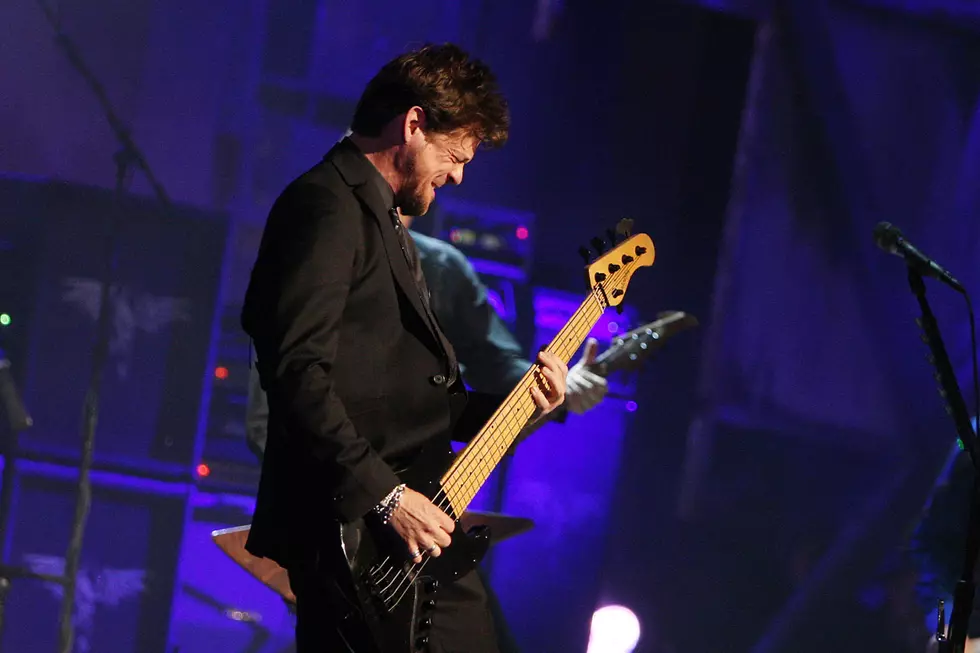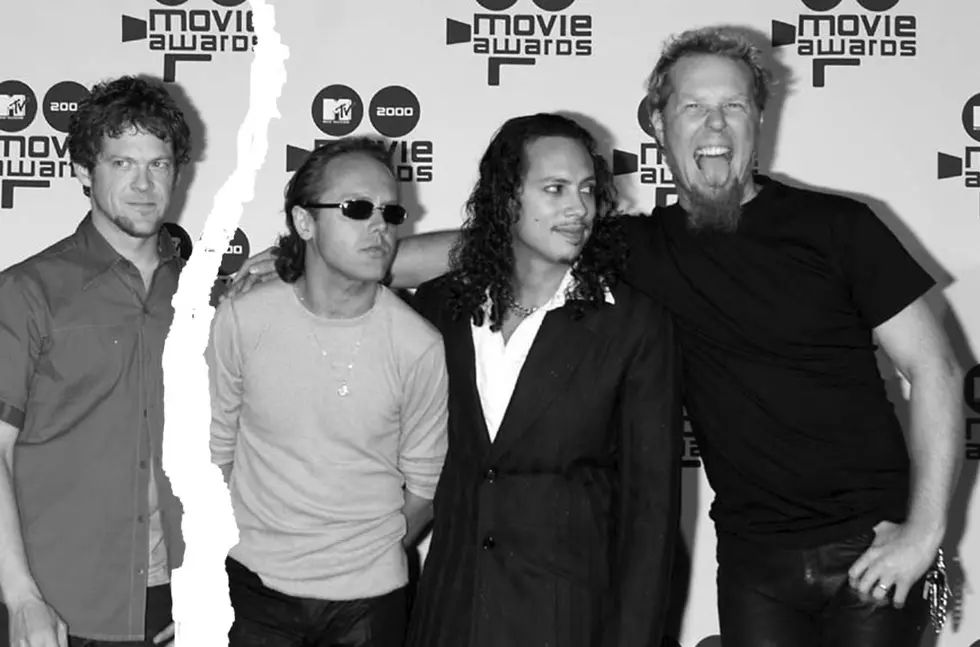
28 Years Ago: Metallica Plays First Show with Jason Newsted
With their career at a crucial stage, Metallica weren't able to wait very long before replacing original bassist Cliff Burton. On Nov. 8, 1986, roughly six weeks after the horrific bus crash that took Burton’s life, the soon-to-be metal giants played their first gig with Jason Newsted at the Country Club in Reseda, Calif.
“He was very serious and fired up and knew all the songs,” Lars Ulrich told MTV. “And he had tremendous energy, enormous tenacity. He was the kind of guy that you could tell, ‘OK Jason, you'll get the gig in Metallica on one condition. You have to go lay in the street and get run over by a truck.’ I mean, he would have done that.”
Ulrich wasn’t too far away from the truth. Newsted was subjected to an endless barrage of pranks, including being convinced that wasabi was mint ice cream and renamed as “Master J. Newkid” in the liner notes to his first recorded output with the band, 1987’s ‘The $5.98 E.P.: Garage Days Re-Revisited.’
Even worse was that his first full-length album with the group, ‘ … And Justice for All,’ contained a mix that rendered his bass parts inaudible. Years later, Newsted was able to look back on those sessions as as part of his evolution as a professional musician. “There was nobody there to work parts out with or discuss how this or that was going to sound,” he said. “It was just ‘record your bass’ and that’s that. I just knew about playing bass really fast like guitar — basically everybody playing the same thing like a sonic wall. So it ended up with everything being in the same frequency, my bass and James [Hetfield]’s guitar battling for the same frequency.”
“I felt that we took a lot of our resentment, a lot of our grief, a lot of our despair around Cliff's death out on Jason,” Hetfield added. “Right from the beginning there was a lot of hazing that just separated him and he was always thought of as ‘the new guy.’ I wish that that didn't have to happen. I guess we wanted to toughen him up, we wanted him to be as tough as us. We were brutal with him. And it never ended, really.”
Such treatment adds up over time. In January 2001, he quit the band, citing “private and personal reasons and the physical damage I have done to myself over the years while playing the music that I love.”
You Think You Know Metallica?
More From 103.7 The Hawk










